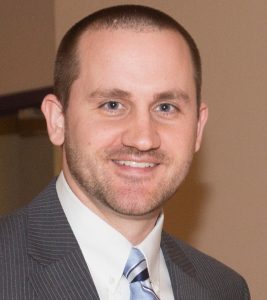 We recognized University of North Alabama as one of the Top 57 Best Schools Offering ABA Bachelor’s and BCaBA Courses, adding them to our list of top recommendations for students in the area.
We recognized University of North Alabama as one of the Top 57 Best Schools Offering ABA Bachelor’s and BCaBA Courses, adding them to our list of top recommendations for students in the area.
We were excited to hear from Dr. Ryan Zayac, BCBA-D, LBA, a faculty member at University of North Alabama who took the time to answer a few questions about how the school works to create a great student experience that helps prepare graduates for a career in applied behavior analysis.
University of North Alabama Programs:
- BS in Psychology with Certificate in ABA
- BSE in Elementary Education with Certificate in ABA
- BSE in Secondary Education with Certificate in ABA

Professor/Faculty Name: Dr. Ryan Zayac, BCBA-D, LBA
Tell us about the types of students you see come through your program. Are you seeing more non-traditional students and career changers coming from other fields?
Ryan: Many of the students interested in our ABA certificate are traditional students pursuing a bachelor’s degree in psychology. However, we have had an increasing number of non-traditional students who are employed by various local/regional behavior-analytic service providers or school districts begin taking coursework as non-degree seeking students.
What areas of practice are you seeing graduates going into? Do they tend to find jobs in the local school districts or more often join private practices?
Ryan: Current graduates from our ABA programs are working in school settings, clinical/in-home settings, and for state/local government agencies. Most of the students in our program currently are planning to work for agencies that provide school-based or in-home and/or in-clinic services to clients with developmental disabilities.
What are some of the things you love most about the ABA program at your university – the kind of things you’d like future students to know about as they consider their options?
Ryan: One of the areas that sets our program apart from others is our department’s dedication to incorporating undergraduates in our research. We have a tremendous success rate of alumni being accepted into high-quality ABA graduate programs (masters and doctoral-level) in part due to their experience conducting behavior-analytic research and contributing new knowledge to the field.
How many credits are required to complete the Certificate in ABA program? What is the typical length of the program?
Ryan: Currently, we offer a 12-credit ABA certificate that may be completed by students either as part of a degree-seeking program or by non-degree seeking individuals who are interested in completing the coursework in order to meet eligibility requirements to sit for the BCaBA Examination ®. Most students complete the 12 credit certificate in two years.
Of note, as we transition to the 5thedition task list, our department is examining the possibility of changing the ABA certificate into a minor in Applied Behavior Analysis.
Does this program help students earn professional credentials?
Ryan: The goal of the Applied Behavior Analysis certificate program is to introduce students to the field of behavior analysis, and to provide training to individuals interested in designing, delivering, and evaluating behavioral interventions. The 12-credit certificate program provides high-quality training in the field of ABA. The coursework, along with appropriate practicum experience, will prepare individuals to sit for the BCaBA Examination. In turn, the BCaBA credential will provide individuals the opportunity to become licensed in the state.
Even though the certificate program does not include practicum, is the faculty willing to assist students in finding potential sites for supervised fieldwork?
Ryan: Although our program does not include a practicum, we have worked with a number of students to identify supervised fieldwork opportunities in the region. We are also in the process of identifying behavior-analytic service providers who are interested in providing academic scholarships to students pursuing the ABA certificate if they agree to work for the company for a minimum amount of time (e.g., two years) following graduation.
Check out our full interview series here to see what other professors and faculty are saying about their ABA programs.






